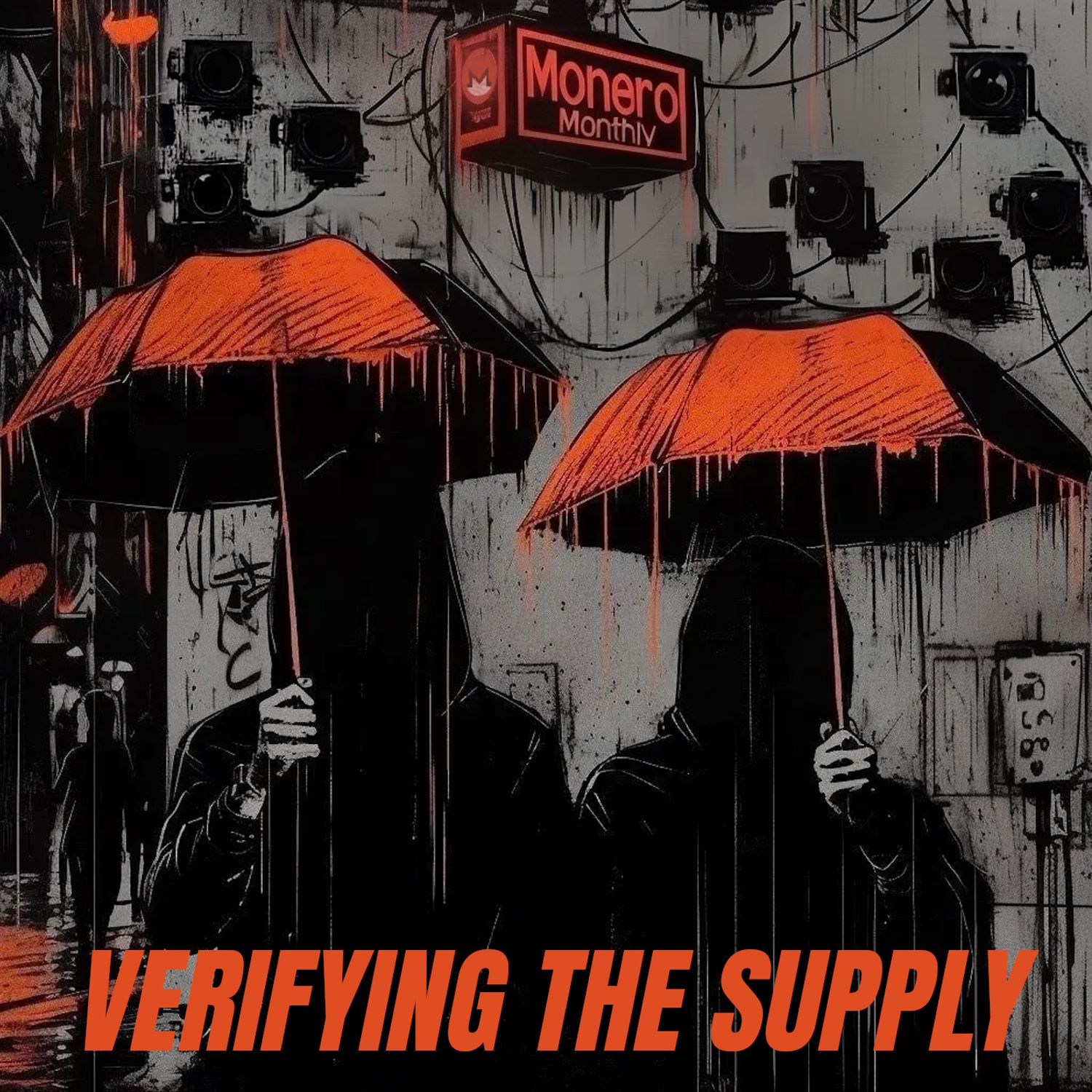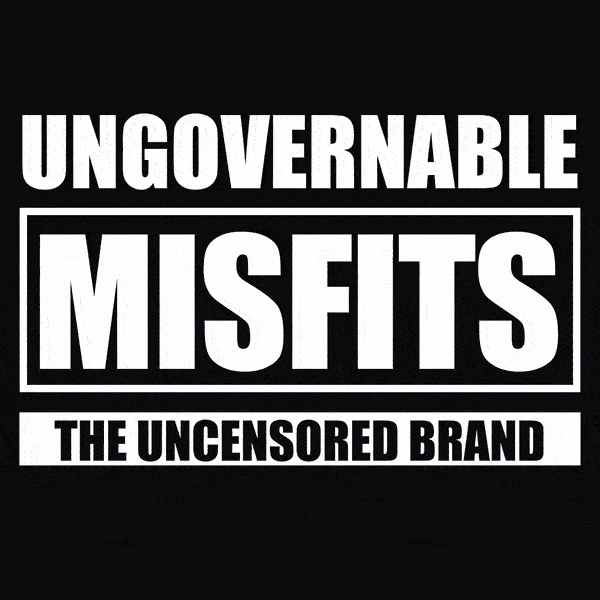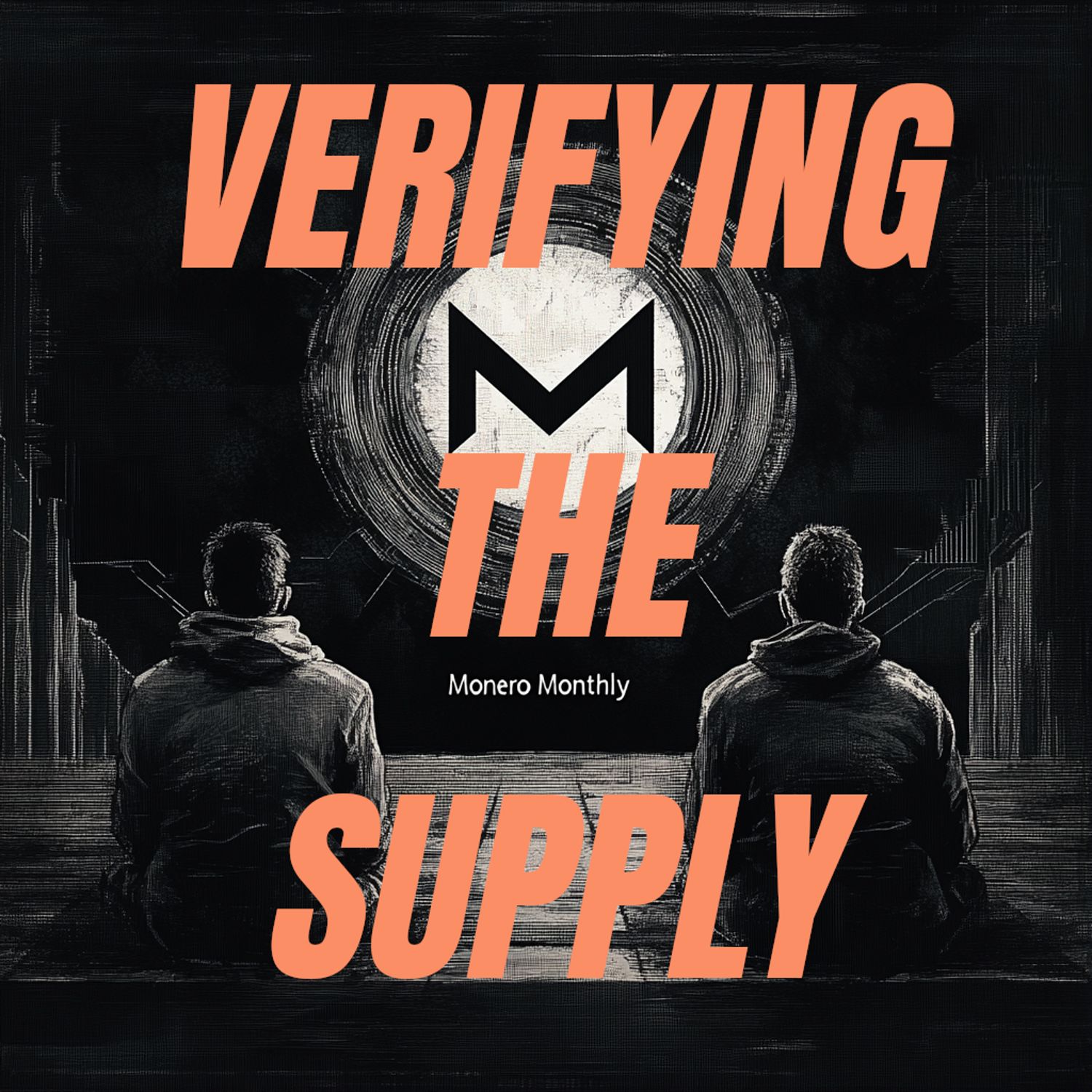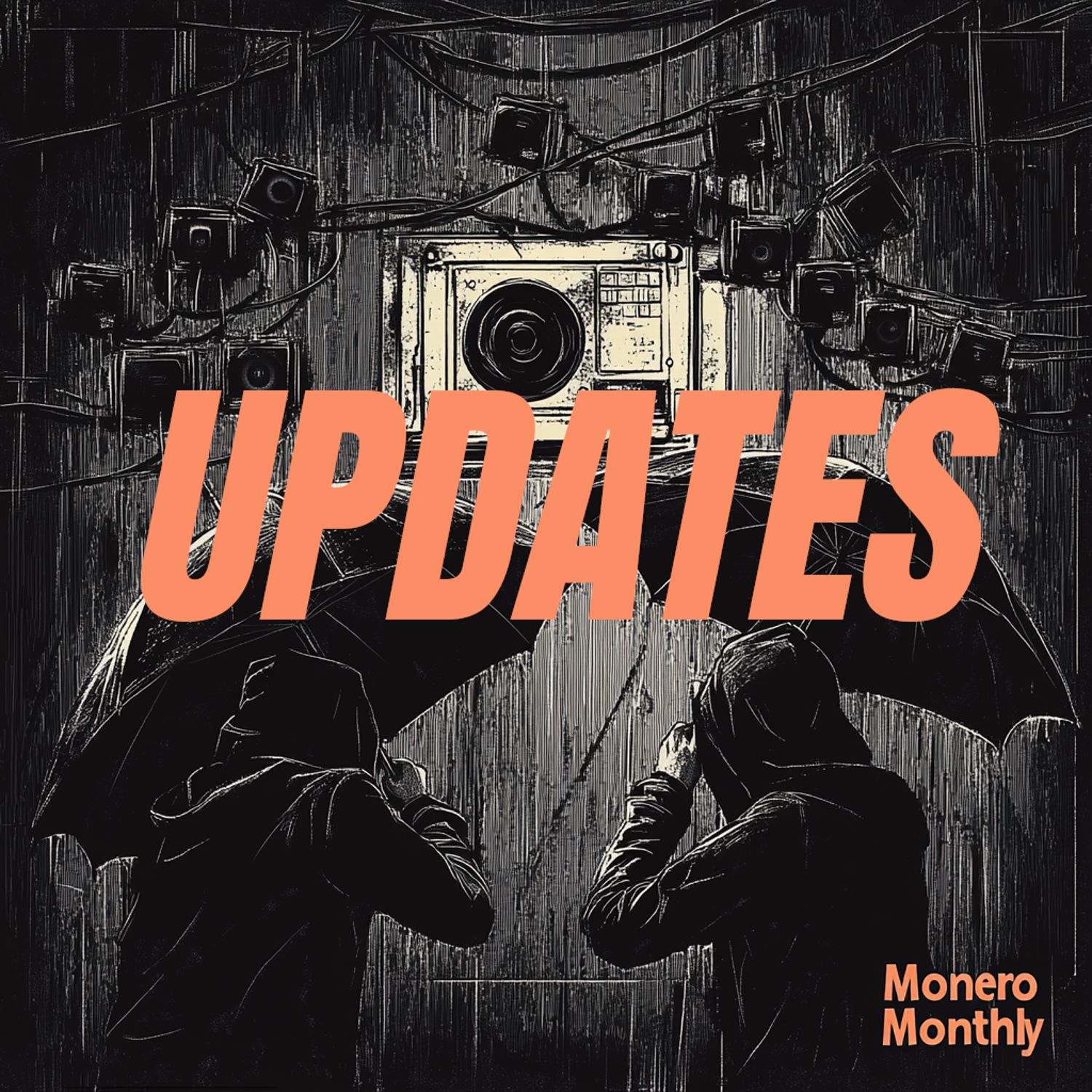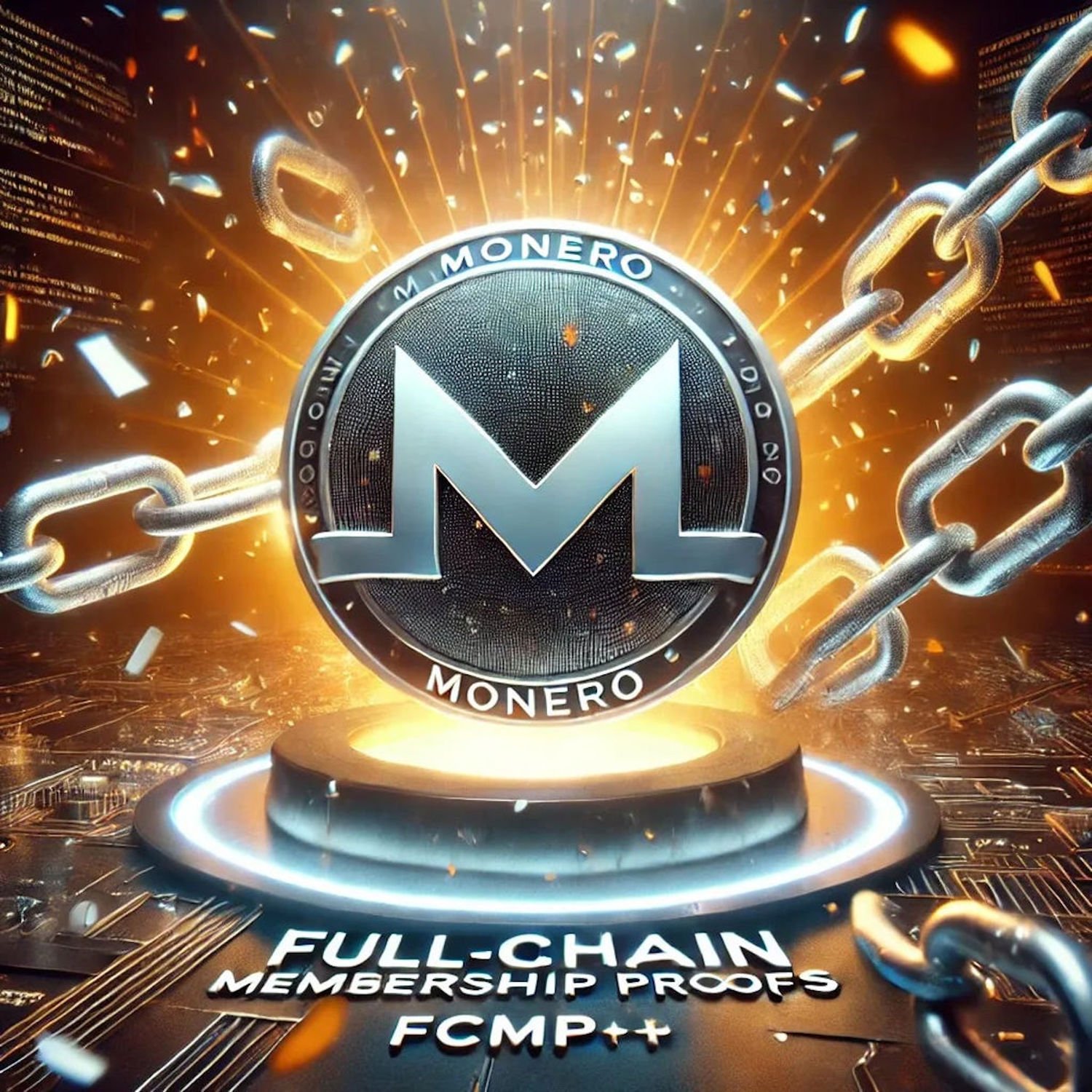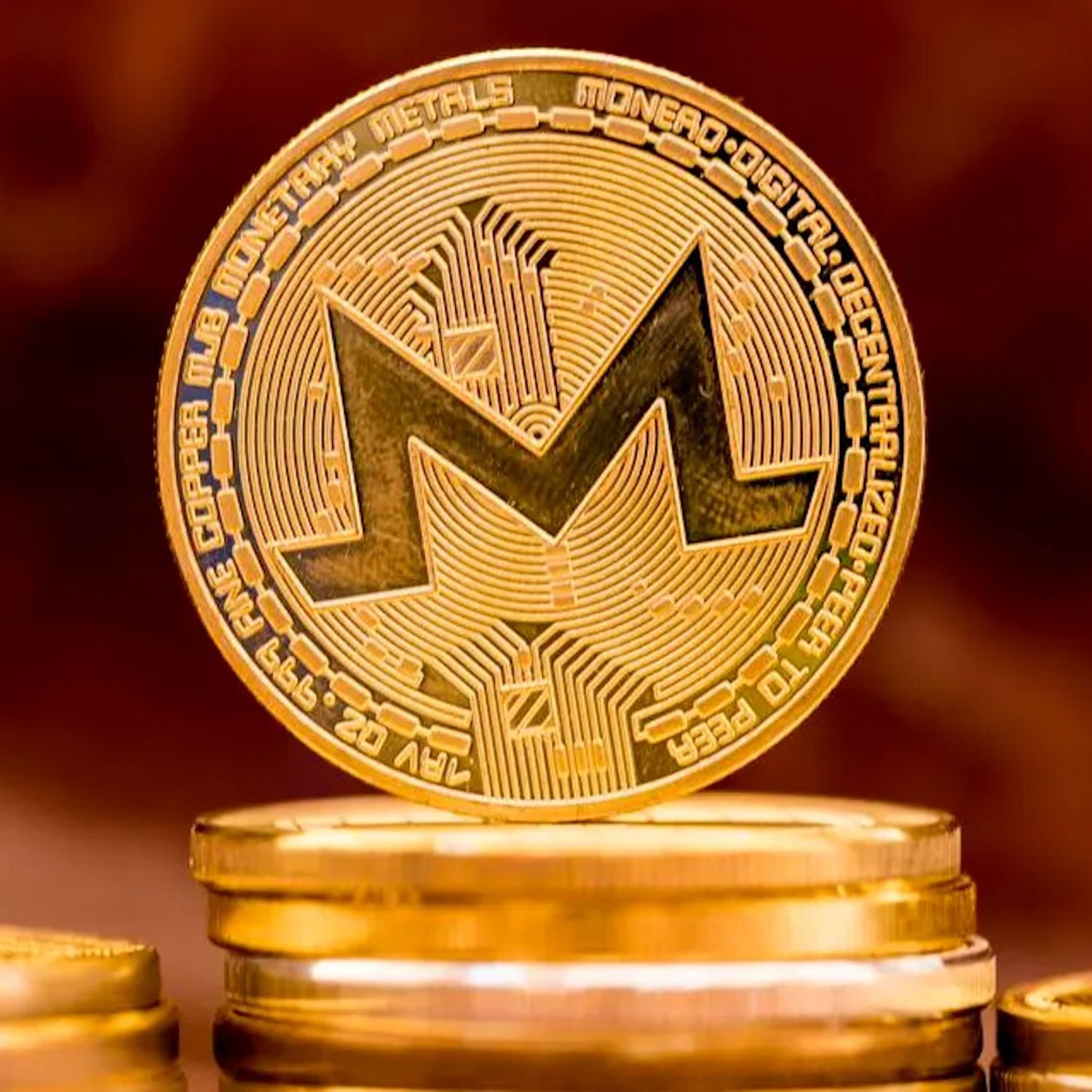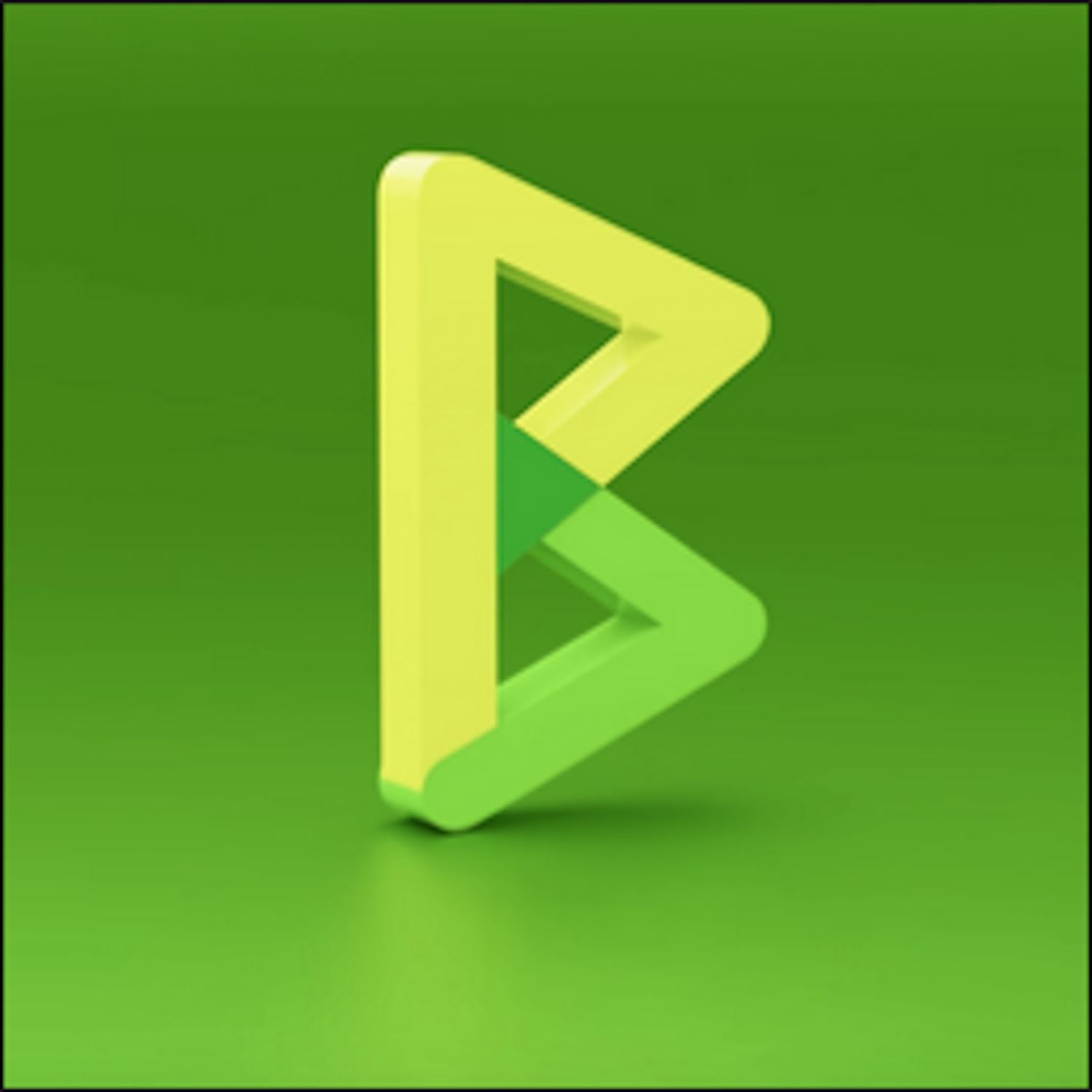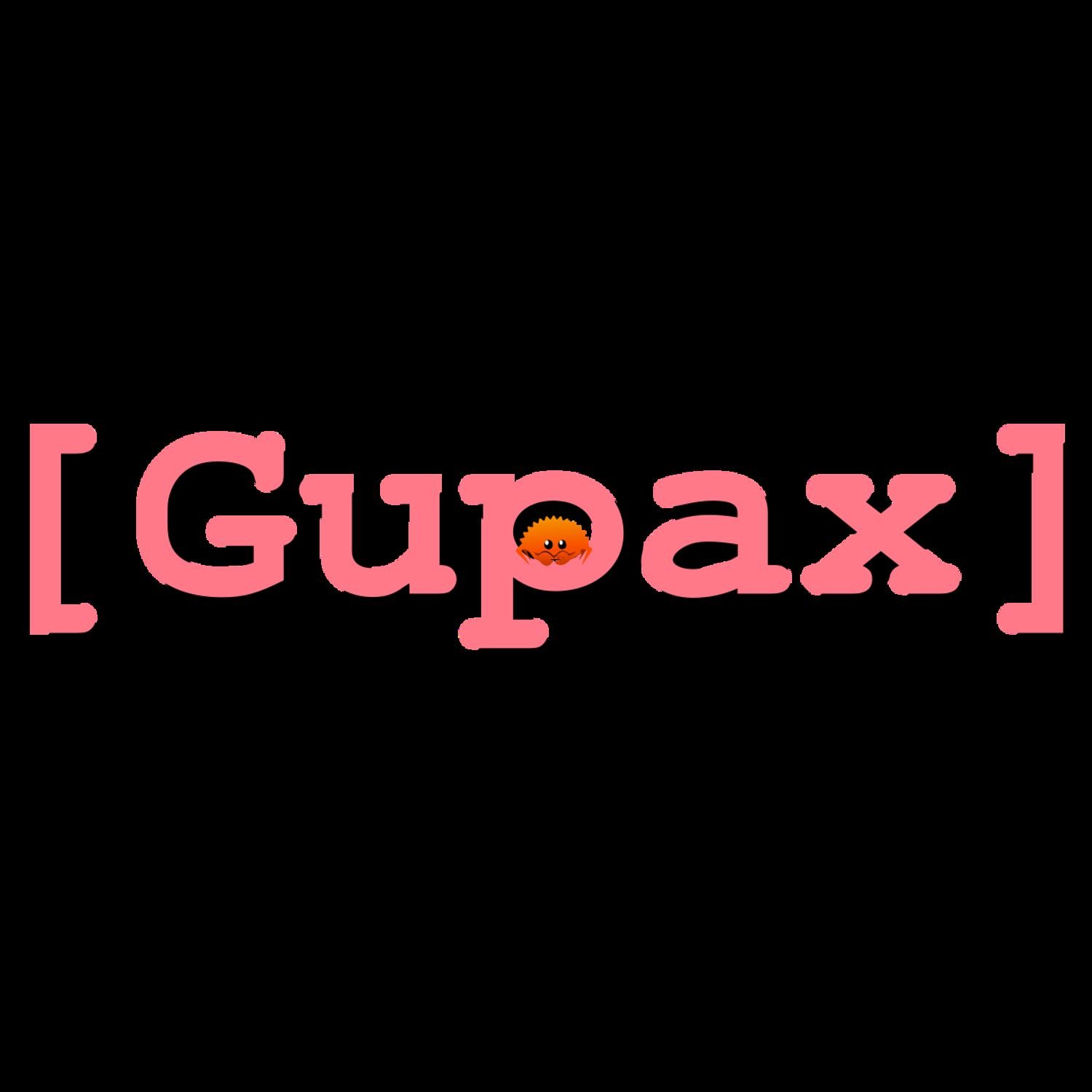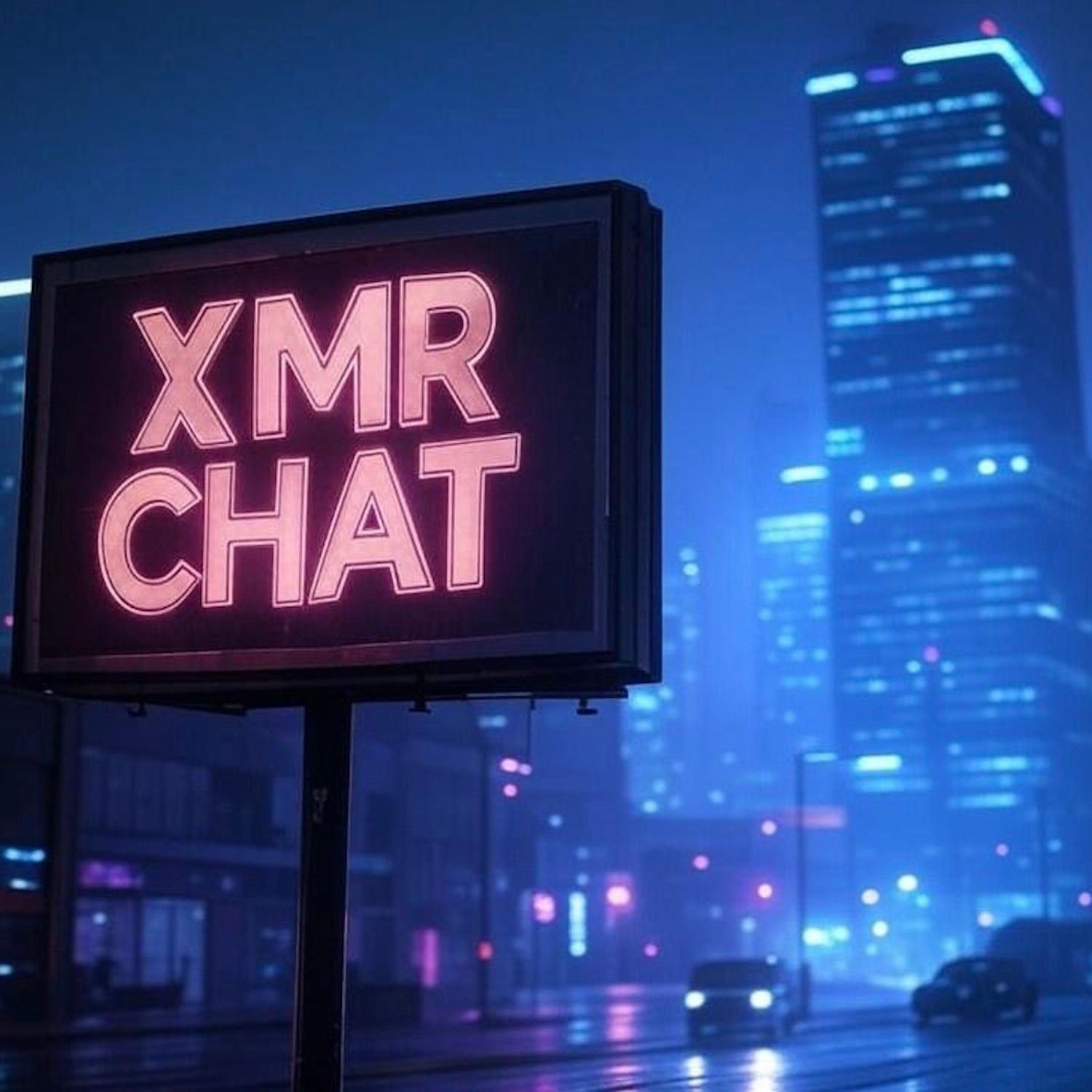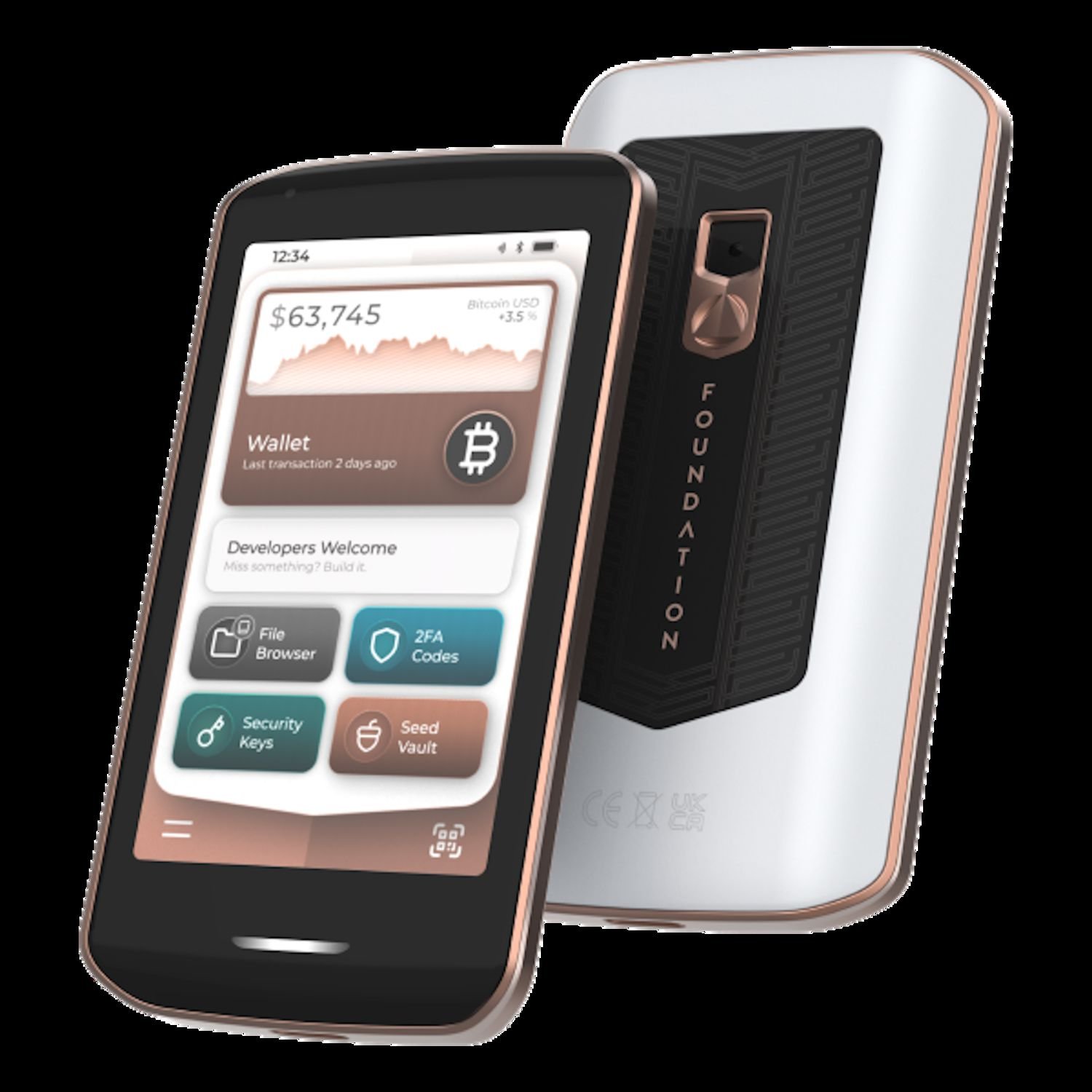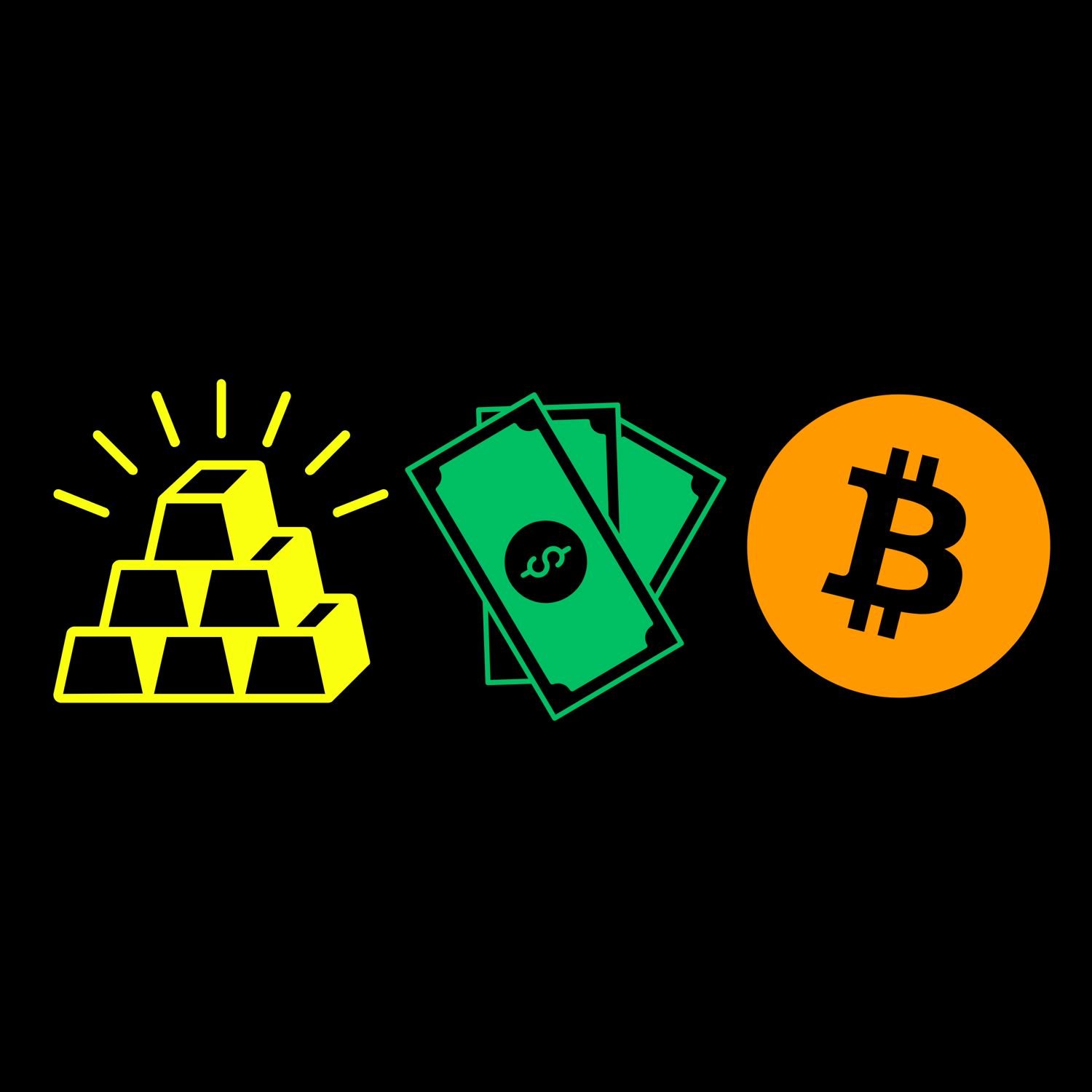- https://sethforprivacy.com/posts/dispelling-monero-fud/#you-cant-audit-the-monero-supply
- https://www.moneroinflation.com
Monero’s supply can be easily audited by anyone running a Monero node, but this process does rely on the soundness of the monerod software implementation and the validity of cryptography used in range-proofs. These range-proofs allow it to be mathematically proven that the inputs and outputs of each transaction add up to zero without revealing amounts, ensuring that the supply is sound and not inflated in any way. Every node on the network is validating these range-proofs in each transaction every time a transaction is first seen, and validating all historical range-proofs when initially syncing.
A manual audit is possible because coinbase transactions (those transactions that are mining rewards in each block including issuance + transaction fees) are intentionally transparent and amounts of these outputs are not obfuscated in any way. Monero users running a node can simply validate these totals on-demand, and all node owners are constantly verifying the amounts in transactions via range-proofs.
Unlike Bitcoin, however, Monero users cannot simply do “napkin math” and validate the supply by manually adding up UTXO amounts, as transactions are never known-spent by the network, only by the parties involved in each specific transaction. This does force some added reliance on code/cryptography over Bitcoin, but as-of-yet I know of no onevalidating the Bitcoin supply this way. It does remain a valuable advantage of a transparent cryptocurrency, though it comes at the cost of the transactional privacy of every user in the system.
General
- New primer on full-chain membership proofs available on YouTube:
- Fantastic Forbes article on Monero:
- BTCPay team being amazing and migrating Monero support to a plugin for v2.x
- https://repo.getmonero.org/monero-project/ccs-proposals/-/merge_requests/538#note_28197
- https://github.com/btcpayserver/btcpayserver/pull/6535
- https://github.com/btcpayserver/btcpayserver-monero-plugin
- Napoly and Deverick Apollo will help to transition the plugin to the Monero community and build out multi-wallet support
- Haveno keeps getting better and better
- v1.0.18 released: https://monero.observer/woodser-releases-haveno-v1.0.18-fixes-improvements/
- Can now buy your first Monero without a security deposit by finding a seller and communicating a password
- RetoSwap is the current live implementation of Haveno, have used to test and has been fantastic, quick, and easy
- Monero passphrase support in Cake Wallet v4.23.0
- Easy way to run a Monero daemon on your laptop or desktop gets even better
- CPU mining vs ASICs
- p2pool vs solo mining
- Mining via gupax on desktops
- Mining via p2pool + xmrig on servers
- Mining Monero via decentralized p2pool keeps getting better
- Gupaxx update v1.7.0 released:
- p2pool v4.3 released:
- You just leveled up 🤜💥🤛 Seth mentioned on MM01 that you can mine Monero on a laptop. Could you walk us through the process? What to download (ideally a GUI for those who don’t know CLI), best practices, guides, etc? Google results are 💩 Cheers 🙏
- What are some good resources for explaining about Supply auditability And how Peterson commitments work? Tell Vik we need some sexy educational material
- What is the highest transactions per second Monero has seen so far? And what is it capable of today?
- @Seth: Followed your Docker guide setting up an XMR node. Works like a charm on my "mini pc". Yet every wallet I connect has issues, Monerujo stops working on connect, Stack Duo syncs but quits connecting after a while. Is Tor the issue, how to debug?
[[LINKS]]
VALUE FOR VALUE
Thanks for listening you Ungovernable Misfits, we appreciate your continued support and hope you enjoy the shows.
You can support this episode using your time, talent or treasure.
TIME:
- create fountain clips for the show
- create a meetup
- help boost the signal on social media
TALENT:
- create ungovernable misfit inspired art, animation or music
- design or implement some software that can make the podcast better
- use whatever talents you have to make a contribution to the show!
TREASURE:
- BOOST IT OR STREAM SATS on the Podcasting 2.0 apps @ https://podcastapps.com
- DONATE to Seth @ https://sethforprivacy.com/donate/
- DONATE via Monero @ https://xmrchat.com/ugmf
- BUY SOME STICKERS @ https://www.ungovernablemisfits.com/shop/
FOUNDATION
https://foundation.xyz/ungovernable
Foundation builds Bitcoin-centric tools that empower you to reclaim your digital sovereignty.
As a sovereign computing company, Foundation is the antithesis of today’s tech conglomerates. Returning to cypherpunk principles, they build open source technology that “can’t be evil”.
Thank you Foundation Devices for sponsoring the show!
Use code: Ungovernable for $10 off of your purchase
CAKE WALLET
https://cakewallet.com
Cake Wallet is an open-source, non-custodial wallet available on Android, iOS, macOS, and Linux.
Features:
- Built-in Exchange: Swap easily between Bitcoin and Monero.
- User-Friendly: Simple interface for all users.
Monero Users:
- Batch Transactions: Send multiple payments at once.
- Faster Syncing: Optimized syncing via specified restore heights
- Proxy Support: Enhance privacy with proxy node options.
Bitcoin Users:
- Coin Control: Manage your transactions effectively.
- Silent Payments: Static bitcoin addresses
- Batch Transactions: Streamline your payment process.
Thank you Cake Wallet for sponsoring the show!
(00:01:14) Verifying the Supply
(00:22:20) UPDATES
(00:22:40) FCMP Video Explainer
(00:23:54) BTCPay Moves Monero to a Plugin
(00:28:02) Haveno Releases Bug Fixes and Various Improvements
(00:33:54) Cake Wallet Updates
(00:34:54) Easy Laptop Monero Daemon
(00:59:04) BOOSTS
(01:07:08) Thanks and C U Next Month
The business will fall victim to a ransomware attack every last seconds, 11 seconds.
[00:00:07] Unknown:
I am investigator. Investigator. Investigator. And I work supporting Our agenda for today, we're gonna start with just the basics of Monero. What it is, what it is, how it works, how it works. Monero is considered a privacy token.
[00:00:32] Unknown:
The world's
[00:00:33] Unknown:
most private
[00:00:34] Unknown:
privacy. Which means that in high, virtually all transaction details.
[00:00:39] Unknown:
The world's most private privacy.
[00:00:46] Unknown:
Which allows cyber for criminals.
[00:00:48] Unknown:
Criminal is now definitely the most well known privacy point. The world's most private
[00:00:55] Unknown:
privacy. Regulated
[00:01:14] Unknown:
Welcome back to Monero Monthly episode 2. We're still here, Seth. I thought we might have got canceled.
[00:01:22] Unknown:
We didn't. I think what? We got, like, 1 or 2 people coming out of the woodwork, and, shockingly, we survived.
[00:01:28] Unknown:
Yeah. It was overwhelmingly positive, which actually did shock me because I was sort of preparing for battle and almost looking forward to it. And, actually, rather than that, we got pretty much everyone coming out saying how much they enjoyed it and how they wanted to learn more about this
[00:01:48] Unknown:
and massive support. So it was pretty unexpected, but nice to see. I know. I feel like I I don't get to fight the fight the good Monero fight that much anymore. Used to be, like, 4 or 5 years ago, if I mentioned the word Monero on Twitter, like, it was war. I was gonna have to fight off the fight off the maxis and defend everything, but it feels like it's not like that anymore. Maximalism is dead. Long live maximalism, I guess.
[00:02:17] Unknown:
Well, I I think it's a lot of it is just, like, people who are starting to adapt. And I also think some of it is, like, the type of person who listens to this show anyway, not Mon Aeromontly specifically, but Uncoverable Misfits, is very much a certain type. So I think it kind of filters some of the number go up craze, you know, people flying around using Wallow, Satoshi, that type of prick. It filters most of them out. And so I guess it is a welcome addition. It was just nice to see. So we've got a lot to cover on this show. We're gonna go through at the end some of the messages on both podcasting 2.0 and XMR chat. But before we do that, we wanna get into the meat of the show. And one of the things that a lot of people have reached out and asked me since our first episode has been about verifiability of the supply.
This isn't really something that I felt comfortable answering properly. Like, I get the basics, like the little, 22nd elevator pitch stuff that someone might say to me. I just don't understand it all well enough to be confident giving any advice. So I promised the people asking that we would dive into that and,
[00:03:35] Unknown:
try and wrap my head around it so others can as well. Yeah. Yeah. I think it's a really good starting point because it is it is one of the most controversial aspects of Monero, I guess, and definitely one of the most, the most common questions that you get when you talk about Monero. Especially, I feel like with people coming from a Bitcoin background. Because there's there's such a strong narrative in Bitcoin of the sacrosanct 21,000,000 about the limited supply being such a core aspect of that. So the concept of not having as simple of supply auditability is pretty terrifying for people. And understandably, because obviously a big reason why we want cryptocurrencies is we want something that reduces trust. We don't want something that just moves trust to someone else, but something that actually reduces trust from fiat. And, obviously, Bitcoin does that by just being open and transparent, which has huge advantages when it comes to things like auditability, when it comes to things like how easy it is to understand how Bitcoin works. But, also, obviously, people listening understand that that means you're battling the core nature of Bitcoin when you want privacy, because you're trying to wrestle privacy out of a transparent chain. It is possible, but it's difficult as I I know that you you all talked about it length on the show. So when it comes to Monero, the main thing that I try to get across with auditability is that Monero's supply is auditable, but in a different way than Bitcoin's. It's not as simple to audit. Basically, Monero auditability breaks down in 2 different ways. So when we talk about auditing Bitcoin, it's very straightforward. You can audit 2 things. You can audit the coinbase outputs, so how much Bitcoin was emitted in each block from the block subsidy. So that's, like, the growth of the actual supply of Bitcoin. You can easily audit. It's transparent.
Simple stuff. Simple math. The other way that you want to audit Bitcoin is you wanna make sure that the actual UTXO set matches the amount of Bitcoin you expect that's actually been issued. So that's what you're doing when you're running when you're running that command against your node and you're verifying the supply. You're making sure that those two amounts balance, that no Bitcoin has been created. And that's basic simple auditability because all those numbers are transparent. You're just doing addition, essentially, to find those numbers.
[00:05:45] Unknown:
Yeah. Simple maths for someone like me is just like you add all the things. Is it the number that you expected? Yes. It is. Fine. We're good. We're happy. And that's what you're saying. It's like there's such a strong narrative. It's simple and very clear. And when you're coming from a world where like, for me, coming from the fiat world where everything is changing and nothing's made clear, and you're trying to do business, but you can't really because everything can change and interest rates can change. And, like, it's very murky and frustrating trying to work out what the fuck to do. And then you come across this, and you're like, oh, wow. This is, like, so simple and so clean.
I love it. When you then go into the Bitcoin world and then someone, as you're about to explain, Monero's more complicated, you're like, no. It's complicated. No. Fuck that off because you're so used to the bullshit in the fiat world and also all the bullshit from so many other cryptocurrencies. You know, people throwing around, oh, have you read this white paper? And, like, oh, fuck off. So, yeah, I think anyone listening who's still here, obviously, from the first episode, is obviously wanting to learn. That sets them apart from the people who just flat out say no. But it's not as it's not as simple. So, literally, you're gonna explain this to somebody who, has the mind of a 5 year old.
[00:07:13] Unknown:
The perfect audience here. The perfect audience. Yeah. Yeah. I mean, I another thing kinda just calling back to Bitcoin that I think is important for people to think about is if Bitcoin had launched if Satoshi had launched Bitcoin with hidden amounts, like, exist in Monero, Can you imagine how much harder it would have been to show people and convince people that it was legitimate? That the supply was legitimate? That they can actually trust what they were seeing? Even just explaining things by showing them a transaction on a blockchain explorer or viewing the output of a transaction from your node is much more complex when you're looking at Monero. And so I think another, like, another powerful reason why Bitcoin's transparency was important is when Satoshi introduced this, there weren't what are there? Like, a 1000000 cryptocurrencies now in this stupid space.
There was nothing. I mean, Bitcoin started at all. So being able to explain you can see where the money's going. You can see 20 Bitcoin was in this input. 20 Bitcoin is in this output minus the fees. Mhmm. It's a much simpler process. So I think that's another reason why I think the way that Bitcoin launched makes sense there. We probably wouldn't be here if he if he hadn't have done that because it would have been too complicated, and people would just be like, nah. Nah. Nah. Nah. It almost like it had to be the way it was. Yeah. Yeah. I definitely think so. I think it would have been almost impossible to get any traction if it had been as privacy preserving as Monero. And when we when we kind of shift to look at Monero, there's still those 2 basic aspects of auditability. So you wanna be able to audit how much Monero has been created through mining and how much Monero exists today on the network. The first part is actually exactly the same as Bitcoin, the coin base outputs. So the amount that actually goes to miners in a, block, totally transparent. There's no privacy there. There's nothing hidden about the amounts. It's totally transparent because we understand that that part of the auditability needs to be napkin math. It needs to be the same as Bitcoin so that we can ensure that there's there's nothing crazy happening with the actual creation of Monero through mining. And so that that is there's no difference from Bitcoin there. That's very straightforward.
The part that is different is that instead of in Bitcoin where you can just go and do the napkin math and add up the balance of all the UTXOs and the UTXO set, you can't do that in Monero for two reasons. One, there is no UTXO set. You actually don't know which transaction outputs have been spent or not. So you can't rule out spent outputs. You would have to check every output. And then the other reason is, as we talked about on the last episode, the amounts in Monero are cryptographically hidden using something called, there's a lot of different names for it. Confidential transactions is the original name. I think confidential amounts is a more useful name. But, basically, that's using cryptography to force the sender to prove that they're not creating any monero and let them do that in a way that doesn't reveal the actual amount to anyone other than the recipient of the transaction. And miners can actually validate that proof. It's a it's a zero knowledge proof, the buzzword of, of these days. Snarks. Yeah. Yeah. Exactly.
I guess, technically, it's not a snark, but it is a zero knowledge proof. Yeah. Okay. Snarks are very specific kind. We don't get too long, but case snarks. Uh-huh. Those are the fancy kind. But yeah. It it uses that 0 knowledge proof so that in order for the sender to create a valid transaction, their proof has to be legitimate. It has to follow the math of how the this cryptography works. And you can order the supply by ensuring that those proofs are valid. Now this is where it breaks down a little bit. You can't do napkin math. You can't just add up the output set. You can validate all of these proofs, and that's what everyone running on narrow node is doing. That's what every miner is doing when they mine a block. But there is a risk of some issue in the way that those proofs work. It is possible for there to be either an issue in the the math itself, the actual cryptography.
Mhmm. I would judge that risk as basically 0 because the cryptography that's actually used here is very well understood, very well vetted, well audited across many projects, and relatively simple when it comes to 0 knowledge proofs. But the other potential risk would be that there's an implementation bug. So the way that this math is actually implemented in Minerals codebase, there was some flaw that no one was able to detect or catch. And so potentially someone could, when they create a Monero transaction, print Monero by faking that proof.
That's the way that they did. It's possible to have hidden inflation in Monero. But, again, that the chances of that, I think, are infinitesimally small. We haven't ever seen anything like that happen. We've seen one potential exploit that could have happened but was detectable and was caught before anything happened. That's basically the core differences between Bitcoin and Monero there. Can I, just take a step back there? So Yeah. What you're saying is
[00:12:02] Unknown:
when a transaction is being made by anyone, a node is validating or multiple nodes are validating that the maths
[00:12:12] Unknown:
behind this what do you call it? Sorry. A You could call it you could call it a range proof because that's essentially what it's doing is proving that the amount exists within a legitimate range of amounts. Okay. So it's revealing
[00:12:25] Unknown:
something without giving away the secret, which is the amount and maybe some other things. Mhmm. What you're saying is that if you trust in the maths, which is goes way above my head and probably a lot of listeners as well. If you can trust in that maths being implemented correctly, then you can trust that the supply is correct. But what about previously, like, going back in history? Has that maths ever been changed? I've loads of people in the past, I remember, saying things like, oh, yeah. You don't know about the early days, and, you know, people could have effectively printed a load and you wouldn't know and all this kind of stuff. I was like, I don't fucking know. I mean, it's above my head. But you're saying that if it was, if the implementation was wrong or there was, an issue there, that could have previously happened, but you'd never sort of know going forward, I suppose.
[00:13:18] Unknown:
Yeah. It's definitely possible. And that's where, like, you just wanna be honest and transparent with people that there's Yeah. Yeah. Yeah. There's like, I can't guarantee that nothing has ever happened. So to go back in history a little bit, Monero actually launched without hidden amounts, So the amounts were totally transparent at launch. Okay. I think for the first 3 years of Monero's history, there were no hidden amounts. So, obviously, we're not really we're not concerned at all about hidden inflation in the very early days because it was actually possible. See there. Yes. You could see there as you could with Bitcoin. You can say, yeah. Everything checks out for the 1st 3 years. We're all cool. And then it's actually most people have said it to me that way. It's like, oh, at the beginning, you couldn't tell. So they obviously just full of shit. They have no idea what they're talking about. It's actually after that 3 year period where there is a possibility.
[00:14:04] Unknown:
But if you trust in the maths that's being used, then it shouldn't be an issue. And the other thing I was thinking is, like, it does matter how much there is, but also some of it is, like, how much the network perceives there is and what percentage of the network that person has, if that makes sense. Like, at what stage if there was a slight, like, one off thing where there was some type of inflation for a transaction, how much would that change things? Because you're never gonna know. You couldn't possibly know, which means that what it is now and how people value that network now doesn't
[00:14:43] Unknown:
change? Yeah. I mean, it's a good point because if you don't I mean, it is kind of a weird thing to think about, but if you don't know about inflation, you can't have this kind of, like, doomsday event bad news where if one flips out because there has been inflation. I mean, the the most likely outcome if there had been an inflation sometime is that someone has just been dumping on the market since then. Because, I mean, obviously, you're not gonna silently inflate the supply and then not sell it. Like, the only goal would be that you want to want to sell it, and eventually, you would run out unless the book was never patched. So I mean, that's the that's the real risk there. Maybe that's been happening. Maybe it hasn't. There's no direct evidence on anything like that has been happening. That's the worst case scenario, essentially, that someone has created a lot and has just been selling into the market. But Yeah. The other thing I think too is, like, the amount that you should care about the about how simple it is to verify the supply. Because I wanna, again, make it really clear that you can verify the supply of Monero. You can verify that all the coin based outputs are legitimate.
That's just simple napkin math. And then you just have to trust this relatively. I mean, it is still cryptography, but they're relatively simple cryptography that's going on with hiding the amounts. And Monero is auditable, but the amount that you should care about how easy it is to audit Monero, I think, also depends on what are you using Monero for. Like, are you using Monero as your sole store of value and your your long term wealth protection? Then, yeah, you should probably care a lot about that. And that's not to say that you shouldn't use Monero for that, but you should probably think more deeply about that trade off than if you're just using Monero for your monthly spending and you're using Bitcoin for savings. It changes the perspective a little bit on what kind of a risk this is to you specifically.
[00:16:26] Unknown:
Changes the perspective a lot, especially as, like, me and pretty much everyone that I know who uses Monero, they tend to use it as a transactional currency. Most people will have Bitcoin as their savings and is very good at that. And then they use Monero for transactional stuff. It is then much less of a concern. It obviously still is a concern, but but like you said, it's it's a very, very unlikely thing to have happened anyway. But for someone like me that spends it month to month like I do with the pound, I'll only keep as many pounds in my account as I need to pay rent and food and whatever else. And I'll keep the minimum in there, and the rest I'll keep in Bitcoin. So it's like, it doesn't really change too much there. It's a good sort of rebuttal to that, I suppose.
[00:17:17] Unknown:
Yeah. Yeah. I mean and obviously, the best case scenario is there is no inflation. And like that, that would be the best thing for Monero users no matter how long you're holding Monero. But I think that perspective is important there. And I think just the last thing that I'll really say about the verifiability of Monero supply is that we don't just like, in the Monero community, we don't just implement major changes to the cryptography and call it a day and move on. Like, there is massive amounts of code review that goes in throughout the Monero community. Monero has some of the most number of contributors over the long haul, as almost any cryptocurrency project out there. And then also when changes happen, like, for instance, when RingCT was implemented, the first approach to hiding amounts within Monero. There were, I believe, 2 audits on that specific change to the code base by different auditing firms to make sure that there was no issue in the cryptography or in the implementation of the cryptography.
And that's happened at every change along the way. So, like, there was an upgrade to the way that amounts are hidden called Bulletproofs Plus and Bulletproofs Plus Plus, where essentially just made it drastically more efficient, like 95% savings in space for that actual proof. And same thing, audited by external firms to make sure that even if the entire Monero dev community was malicious or were incompetent and had missed something, there's an external firm that's well known in the space for auditing that's also going over it. So there's there are a lot of eyes that are going over both the cryptography and the implementation.
And the cryptography being used here is also broadly used in the cryptocurrency space. A lot of it originated with Bitcoin, researchers way back in like 2012, 2013 when the original idea of confidential transactions was created. And then a lot of the improvements since then have originated from Zcash researchers, from other researchers in this space. So it's not even just a Monero community thing, but it's a broad set of cryptography that's being worked on by many, many, many people far smarter than I am. So there's a lot of reasons to trust that both the math and the implementation are sound, but that is still introducing a little bit of trust in a system that something like Bitcoin doesn't have. But for obviously, the massive advantage of the privacy improvement being just incredible compared to having transparent amounts. And the hidden amounts provide so much extra power to the other privacy tools that exist on Monero that it's a really, really vital aspect of that, but not one without trade offs.
[00:19:46] Unknown:
Yeah. Absolutely. Yeah. I think that's a fair summary of it. And the other thing as you're saying that, I'm thinking, okay. So we have to trust some firms, and we have to trust some smart people to trust that they understand the cryptography well enough to implement it and trust that all of this code is being reviewed by lots of smart people. It's the same in Bitcoin. Like, I'm not a cryptographer. It's different with the supply, but it's like, how am I so confident that my Bitcoin's secure? Well, I trust in the cryptography. I trust in the people who are reviewing it. It's not like I can review that myself, and it's the whole way through the cryptography space. In any, like, banking and missile codes and all this stuff, it's like, do I know how it's secure? No. I fucking have no idea. I just know that someone smart knows and that other smart people are checking. You also have a lot of people who would love to find out that there is a flaw in Monero Oh, yeah. And try and shit all over it and attack it, that obviously means it's gonna be stronger for that. So I think people need to bear that in mind as well. Yeah. I get what you're saying. I I I feel comfortable with that, and I think it was explained in a clear and honest way. Not trying to hide anything, just saying there are trade offs to get this level of privacy.
Here they are. If you want absolute guarantee of the verifiability, you got Bitcoin. If you want the privacy and very, very, very good assurances, but you can't a 100% guarantee, then you've got Monero.
[00:21:16] Unknown:
Yeah. Yeah. I definitely agree. I I think I just think of one more thing I wanna throw out, and then we can move on because I don't wanna keep us here forever. It's just that, like you mentioned, there's still trust when you're using Bitcoin, and Bitcoin is also not immune to inflation bugs. I mean, a lot of people might not realize it, but Bitcoin had an inflation bug. 2012, I think so. You're, like, a 188,000,000 Bitcoin or something were created out of thin air. Mhmm. And thankfully, it was detected, but it could have gone undetected in different ways or someone wasn't paying attention. And that required a hard fork to roll back the chain to remove the inflation.
So it's not like just because Bitcoin has transparent amounts, there can't be inflation, but rather that that inflation is much easier to detect. And then you'd have to hard fork and roll back, which that would be Mhmm. I don't know how that would happen to take in Bitcoin. That would be a fascinating thing to actually happen and have to walk through. But in Monero, obviously, if there is inflation, it could be hidden because the amounts are hidden. There's a lot of privacy. So Yeah. Always trade offs for sure, but no system is immune to this even if it is is transparent. I think that answers that one. What else is going on in the Monero world? Yeah. We can we can jump into some, some updates here. So, obviously, we'll have links to all of this in show notes. So if you wanna investigate any of these items a little bit more, you can you can jump in. The first couple of things that I wanted to highlight are just two resources that I saw that came out over this last month. One of them is I know we talked about on the last episode a bit of full chain membership proofs, this upgrade to Monero that's coming. That's gonna drastically improve the privacy that Monero provides for senators specifically.
There's an entity who got funded by the mayor community to create some, like, short educational videos on different aspects of Monero, and they created a full chain membership proofs video, that's available on YouTube. So I'll make sure to link that in the bottom. Obviously, we're not gonna walk through the the video itself here, but just calling that out because it's a really helpful, like, very simple visual explainer of what full chain membership proofs are and and how they work. Very nice. Yeah. Yeah. That was cool to see. And then another one just to go look at if you're interested is Forbes actually did a really good article on Aero, which was was shocking to see. But Yes. How is it? Yeah. The the title is is Monero keeping Bitcoin Cypherpunk dream alive. And it's just a really interesting essentially thought piece on what does it actually look like for cryptocurrency to be Cypherpunk?
And what are the paths that we see Bitcoin and Monero taking? And what are the pros and cons of each? So just a really good article. I felt like it was very balanced. Not only Pro Monero, not only Pro Bitcoin, but a good look at kind of the paths that have been chosen by many in the community of both. So that that was interesting. The 3rd big thing that was actually really, really amazing to see and I wanted to to shout out the team behind BTCPay. So BTCPay server obviously is, like, the most widely used as far as I know payment processor in the Bitcoin space. That's open source that people self host. Obviously, there's closed source ones or ones that you you trust a different entity to actually run the run the software or hold your keys. But for actually self hosting, it's by far the best tool out there. They have had Monero support for a very long time even though they are not Monero people at all. They very much are Bitcoin only, but the way that they built BTCPay is that communities can easily build support for their cryptocurrencies into it and then maintain it themselves. So Monero has had a support in BTCPay for quite a long time. I've helped out as much as I can to maintain it. We've had a couple other people step in to maintain it. But with the BTCPay upgrade from 1.x whatever the last one dot I think it was 1 dot 13 or something version that they had. They overhauled, like, everything about how b2cpay works with 2 dot o. And part of that essentially broke the way that Monero has worked for a long time. They fixed it up and made it backwards compatible at first, but they actually just stepped in this last month and ported the entirety of the Monero support within PTC Pay to the new method that's necessary in 2.x without being asked, without any funding, and built the support themselves. It was something we in the Monero community were trying to figure out who was gonna actually do it. There's some fundraising going on for that. And they very graciously just did it themselves, which was amazing to see, and I did not expect that at all. That's cool. Yeah. Yeah. They they converted it over, so support for Monero will continue there. There's still an ongoing fundraiser for a couple people in the Monero community to continue to improve the Monero plug in itself and to take over maintaining it. But I just wanted to specifically call it the BTC Pay team because they did not have to do that. They just realized that a lot of people use Monero and BTC Pay and they wanted to see it supported.
They were grateful because the Monero community has done a lot to support the BTCPay project and the Monero support within BTCPay. So, yeah, just a really cool thing to see that I I did not expect to happen. That's cool. We we
[00:26:04] Unknown:
excuse me. We, actually didn't upgrade for that reason, so we stayed on the old version with our BTCPay. And I was like, well, I'm not gonna be upgrading because it's gonna cause problems. And Jordan was like, oh, just fucking me. If it if it works, don't touch it. But now I'm like, maybe I'll consider it. Maybe I'll do an upgrade.
[00:26:24] Unknown:
Yeah. It makes it a lot easier now. And the the actual way that Monero integrates now is a lot simpler as well since it's, quote, unquote, just a plug in rather than this whole additional Docker setup. So it's it's pretty cool. We we also at Cake, we haven't upgraded to to 8.0, both because I don't like rushing to rushing to upgrade to a massively new version when you're in production and have, tons and tons of transactions every day going through it. But also because of the Monero support. So, yeah, it was it was really cool to see, and I think we'll make it a lot easier for Monero using merchants to to migrate to 2 dot o as well. And does that mean,
[00:27:00] Unknown:
like, if anyone's listening and they're running BTCPay and they're thinking, you know what? This Monero stuff, I might try and accept it actually on my store. Are they still best to go to your guide that me and Jordan followed to set up here, or is it now made it even more simple?
[00:27:16] Unknown:
So I need to test the new plugin myself. They said that the way that I did it in the guide will continue to work for the foreseeable future, but the new approach is basically just a plugin within BTCPay that you can enable freely. So that it should be much easier is my understanding, but I haven't actually set up a new version with the new plug in to test that process. Alright. But yeah. I'll try to do that probably before the next show, and we can report back on on what that looks like. And if it is working the way that I think it should be working now, my guide should be drastically simpler because you shouldn't need to do any real special Docker things or anything like that. You should just install the plug in and then move on with your life. So I'm quite excited for that. Yeah. Very good. Yeah. So those were kind of the general updates that I had. When it comes to software updates, there's 3 major ones that I wanted to hit on. One of them is the software called Havino, which essentially is a Bisc fork that's been rewritten to use Monero at the core. So instead of Bisc obviously is Bitcoin everything. So all the deposits are Bitcoin.
Anything that you're trading, whether it's Fiat or other cryptocurrencies are going through Bitcoin. It's all Bitcoin. Multisigs under the hood, which obviously is nice if you're only doing Bitcoin, but has the disadvantages of in high fee environments, Bisk was, like, insanely expensive to use. Like, when we were at, like, 200 sats per vByte, your fees were going to be absolutely nuts if you're using Bisc to make any trades. And then the other downside to the way that Bisc is built right now is that the way trades appear on chain is a unique fingerprint for Bisc trades. So it's very trivial for anyone to see what transactions were a bisque trade. And then if you use the bisque token as well for paying fees, it actually makes it even worse and connects all of your bisque trades together, because of the way they're actually paying with the colored coin works within risk. I've never heard anyone
[00:29:14] Unknown:
ever say that. That's interesting. Even, like, a lot of talk, I remember when they were bringing that token out. There was a lot of talk about, oh, is this a shit coin? Who's I need? And blah blah blah blah blah, all this stuff. And I never used it just because I was like, I just can't be arsed. Yeah. It saves me a little bit, but I can't I can't be fucking around with this. But no one ever said, he's gonna link the transactions together, the ones you've been using. That's a pretty major problem.
[00:29:39] Unknown:
Yeah. It's I like, I actually think the idea of their token is actually quite good as a funding mechanism. It has worked really well over the years, but that is the major downside because of the way that the payment for the fee actually works. It's it ties everything back together, all of your best trades back together under one clear wallet for a kinda, like, chain analysis firm or something that's looking at those trades. So, I mean, it is no k y c, so it's not it's not the end of the world in that your ID is not directly attached to it. The only person who would know who you are is maybe someone that you've swapped with if they had gotten that kind of ID info from you or if the bank account transfer that you you made had full details, something like that. But it it is just something for people to be aware of. And, like, I love this. I'm not saying this to to shoot down Bisc. I've been a Bisc user for years years. Still use it today, but those are some of the downsides that come with disk. So when the Monero community wanted to it it's it started having started because initially, there was no openness to basically improving the Monero support within disk. Even though Monero was, like, 80 to 90% of the volume on Bisc for quite a while back when all this was happening. So then our community just decided, okay. We'll we'll just build our own and we'll build it on Monero because then we get the native advantages of very low fees, faster transaction times.
That part's kind of debatable with a 10 block lock, but that's a subject for another day. And then obviously improved privacy where now there's not this on chain footprint of this transaction was a swap. It just looks like another Bairo transaction. And so this got built out. It's been a work in progress project for multiple years now, but recently became something you could actually use. So there's the project itself, which is called Havanow. And then there's an entity who is essentially running an instance of Havanow called Ritoswap. They used to have a different name, but they just renamed to Ritoswap.
Basically, it's it's Havanow, but with their arbitrators as the ones who help in the instance where someone tries to rob bull or something like that. And I've been using it off and on for a while now. There's been just tons of improvements over the past 6 months or so to have an o and thus redo swap. It's just it's really cool software. If you're trying to get your Monero directly for Fiat, there's really no other way to do it today without KYC. So it's a great place to do that. You can use all the normal, sell, cash app. There are ways to do face to face cash and other things within it. And then an additional unique thing with Ritoswap is one of the downsides of the way that both Bisq and Havano work is if you want to buy Bitcoin, you have to already have Bitcoin because you have to be able to pay a security deposit to take an offer. So it's always been something where, like, you can't onboard a new person directly to Bisk. They have to have Bitcoin initially to be able to use this. And the same problem existed for Haveno. But there's a a unique approach that's been taken where there's a special type of offer that you can do in Haveno where you basically password protect it, but then you can communicate with someone outside whether that's in, like, the have a no simplex chat or that's on Twitter or in a Telegram group or whatever. If someone wants to get their first Monero, you can just give them the password to your offer, which does trust them a little bit because they won't have any Monero for security deposit. But then you can still do a trade and essentially get them onboarded that way. So that's a cool thing that's been added recently and have them as well. Nice.
[00:33:00] Unknown:
I'm pretty sure there's some questions later on on it. But, for people who haven't got any Monero and are thinking, how do I get it? Where do I go? It sounds like that might be quite a nice first step rather than trying to go to one of the few exchanges that still has it and handing over your details. If you can avoid that Yeah. That would be better. Yeah. And, I mean, the nice thing is if you already have Bitcoin or really any other cryptocurrency, you can pretty easily swap some for Monero to get enough for the security deposit. So to me, it's not as big of a problem as with Bisk because
[00:33:35] Unknown:
there's not that many people who their first cryptocurrency is Monero. It does happen, but it's not as common as Bisk. But like you said, it is a nice option to still have for those who don't wanna do some sort of swap for Bitcoin and just wanna get started with Monero, something like that. So, yeah, it's been it's been nice to nice to use that and see the growth there and see the liquidity rapidly improving there as well. Yeah. Definitely. 2 more quick ones. I don't wanna hold this up too too long here. Cake Wallet, we've got version 4 dot 23 coming out this week. The main thing to highlight from an Arrow is that we've added passphrase support when restoring wallets. So if you've been a Monero user and have a passphrase on your wallet, you'll be able to actually use that within CakeNow. So it's not the sexiest feature. It's just a nice to have, especially for people who prefer that approach of having seed plus passphrase. You can do that in Cake Wallet now. You can't create a new wallet with a passphrase yet, but that'll be coming in the next version of Cake. So, yeah, just a a minor update there, but something that's nice to have, I know, for some of the more hardcore users. Yeah. Definitely. I don't even know you could have a passphrase on a Monero seed, to be honest. Yeah. It's not I feel like it's not nearly as common because the support in wallets hasn't been really there as much as it has been in Bitcoin, but it has always been possible. It's just something that's that's not as straightforward.
I mean, it's been like the CLI wallet for a very long time, but obviously not many people are using that. So I'm sure that usage will grow as well as support grows like this. Yeah. And then last one in the software updates, there's a really cool tool that somebody claimed a bounty on by building out, where basically you can run a Monero daemon on your desktop or laptop really easily. It's just like a really simple app that Mhmm. Downloads the Monero daemon, helps you to set it up, and set configuration and everything, and run it as an app on your computer. So there's nothing too crazy. It's just a nice way to be able to run a node if you don't have a separate server or or something where you could run that. You can run it directly on your computer really easily. Of course, we'll link in the show notes so you can get it if you wanna play around with running a Monero daemon, but it's the simplest way to do that right now for sure. Like, I have a whole guide on running a daemon on on a server or something like that, but that's much more complex. I know that that you've been running the Monero node on your start 9, and thankfully, it's starting to get easier and built into those node packages.
But I know there's still some kinks that are being worked out there. So sometimes, you can just run the daemon itself. Yeah. I think so. There's been some reliability issues for me and a few others.
[00:35:52] Unknown:
I need to rebuild my node anyway because while testing something the other day, I completely fucked my laptop. So I've had to order a new NVMe and some other bits and start from scratch. But Oh, man. Once I've done that, I'll I know I'm
[00:36:07] Unknown:
there's always something. But once it's rebuilt, I might give that another go because the setup was pretty simple. Yeah. I'm definitely curious. I'll have to I'll have to look into those issues too to see if there's anything I can do that to help there because it's been really nice that people can actually just click a button and run them in our node. And that that needs to be the future for it to be much more widely spread. So I'm glad that's growing, but hopefully, we can get through this growing pains there. Last major topic I know that we wanted to get into a little bit is mining Monero. I don't know how like, how deep do you wanna go on this episode, or do you wanna leave some of it for a a future episode?
[00:36:41] Unknown:
Yeah. We can we can leave some for a future episode. I think, it would just be cool to cover some of the basics. Some people again have been asking about, like you know, because I mentioned that Ungovernable Misfits are now doing it, and people can join and mind Monero on their computer. Basically, it's donations to us. Jordan set that up for us, and I thought that was really cool. But, yeah, people just had some general questions, like, around, you know, is it profitable? How hard is it? Privacy concerns. You know? Are they gonna dox their IP? Just all sorts of questions like that, and it's not something I not really know anything about at all. So maybe just like a bit of an overview of, like, your thoughts on people mining Monero.
[00:37:24] Unknown:
Yeah. Yeah. For sure. So, yeah, we'll do kind of the elevator pitch. And, maybe in another episode, we can we can deep dive more on, like, CPU mining versus ASIC mining and all the nitty gritty details. But the yeah. The kind of the TLDR for Monero mining is it's similar in concept to Bitcoin if you've ever mined Bitcoin, especially if you've done it with something like, Biddex where you're mining without the expectation of, like, massive rewards or something like that. But in Monero, the ASIC essentially is the CPU in your phone or your laptop or your desktop. Yeah. The way that mining has been built within Monero is to be ASIC resistant to try and prevent ASICs on the network, and that's a whole long topic for another day. But what that means is that you can very easily and relatively efficiently mine Monero on any device. We actually covered that on our first episode. We went into it. Oh, yeah. I forgot about that. Fairly deeply in the pros and cons and stuff. So anyone who maybe is listening to this and missed the first one, go back, and we cover that in detail. Yeah. I'm glad you mentioned that because I'd forgotten that we had we had dived pretty deeply into that and had a lot of back and forth on the topic. Yeah. So so we don't need to get too in-depth, but, basically, you can mine on any computer relatively efficiently. Obviously, higher end CPUs are gonna be better, Specifically, AMD CPUs, the way that they're built with a lot of, l three cash is specifically better for mining Monero, but it's all in a relatively close range. The other main thing to call out with Monero and the way that I recommend everyone actually mines Monero is instead of on Bitcoin, where you basically right now have 2 options. You mine on a centralized pool or you mine with your own private solo mining pool. Something like p 2 or not p 2 pool. Public pool, which I know there's been a lot of a lot of Twitter spats going on lately for no good reason about the legitimacy of the project, but it is an awesome project. I wrote an instance myself. But that's basically your 2 options in Bitcoin. There's some nuance to that and some alternates like Datum on Ocean, but those are pretty niche for right now. In Monero, there's really 3 options.
So there's centralized pool mining, which I think is what y'all are doing right now even though I I think y'all are gonna switch to p 2 pool. Yeah. I can't I can't remember the name of it, but I know that we are switching. Yeah. Yeah. I can't remember the name of the pool off top of my head either. But, yeah, there's there's centralized pools. There is solo mining, obviously, but then there's also another option, which is a little bit more in the middle, which is called p 2 pool. TLDR essentially of this is it was a concept that was actually created for Bitcoin but never took off.
Both because there were some issues with the actual, like, the way it was implemented initially. This was before there was really, really any kind of home mining community. I mean, this was before all of the running in ASIC at home, like all of the movement that's really happened over the last 4 or 5 years. And it just never took off. It died. There is no p2pool usage on Bitcoin today. But the concept was taken by a Monero developer. One of the people who actually was key behind the ASIC resistant mining algorithm that's used in Monero. And he basically rewrote the entire concept of p2pool to be much more efficient, fixed all the issues with it. And basically what it is, is you work with other miners similar to how you would work in a centralized pool, except everything is done on a it's basically a blockchain, but one that's not that has no value, has no token. Nothing like that. It's a blockchain that's used just to organize between the miners in a decentralized way and to ensure that the payouts in each block properly reward miners in a way that's cryptographically provable that no one can get scammed or anything like that. Okay. It's basically a decentralized pool where you're able to get the benefits of you're creating your own block template. You're actually deciding what transactions go in a block. You're getting paid out. But you're also not getting the downsides of solo mining where you're essentially just doing a lottery. You're getting the benefits of using a pool where you're getting much more consistent payouts, more frequent but smaller payouts than solo mining, and better guarantees of actually getting something at the end of the day. So it's a really fascinating in between, really powerful and relatively simple to use. There's a really cool tool called Gupax, G U P A X. Again, we'll link it in the in the show notes, but it's just a simple desktop app available for Windows, Mac, Linux. You just spin it up. It'll download all the software that you need, help you configure it. There's a simple setup guide and you can be off to the races mining Monero on P2Pool, which is not only best for decentralization, but also still gives you that nice consistent payout structure of a centralized pool. So it's a really, really awesome feature of Monero and one that's really easy to get started with on any computer.
[00:42:07] Unknown:
That's cool. As you were saying that, I was just thinking the other question I had is sometimes there's a concern with Bitcoin that you can have, like, blacklisted addresses and, like, sanctioned things where people might be pressured not to mine certain transactions. Obviously, like, they can push the fees up, and then someone else might mine it, and you've got all this kind of stuff going on as well. But with Monero, presumably, that isn't an issue because it wouldn't be viewable. The amounts wouldn't be viewable or the address wouldn't be viewable.
[00:42:43] Unknown:
Do you know what I'm getting at? Yeah. No. I definitely do. So, yeah, there isn't an ability in Mero to censor individual transactions because Mero is actually fungible. Because you you can't tell the history of any given transaction, and you also can't tell the address, and you also can't tell the amount. So there's nothing you actually censor by a minor. Like, there's actually a couple of Monero addresses that are on the OFAC sanctions list, which is hilarious because there's literally no way to enforce that. But it's interesting because it shows that Monero is at least used enough that, like, OFAC cares about it. But yeah. I mean, there's there's no way for an individual miner even if Monero was centralized to a single miner, there's no way that they could censor individual transactions.
The only form of censorship that can exist in Monero is mining empty blocks. You would just have to not accept any transactions
[00:43:31] Unknown:
into your block, and that's the only form of censorship that's actually possible within Monero. But you'd have to burn a lot of money to do that, and you'd eventually, presumably, have to stop because the cost.
[00:43:43] Unknown:
Yeah. I mean, it definitely would depend on scale. Like, if we're talking, like, a nation state, they could definitely afford to they could definitely afford to burn the the amount that is in transaction fees in Monero because it's not it's not like a it's some crazy amount. But, yeah, if we're talking a a random attacker or chainalysis or something like that, it wouldn't be a trivial amount to burn to to mine those empty blocks. And just like in the game theory of in Bitcoin, if you have one legitimate miner who's mining blocks, you could still be getting blocks through the app transactions.
Yeah. Yeah. So obviously, they would need an they would need an overwhelming percentage of the network to actually be able to prevent any transactions from getting through. It would just be slower, essentially, as long as they were legitimate essentially, as long as they were legitimate miners. And things like p 2 pool, things like the ability to mine on any computer, not have to have an ASIC helps to ensure that even in that, like, worst case scenario, it's trivial for anyone who cares about Monero to start mining and help to ensure that transactions get through. Okay. Yeah. I think that's it for the mining. I mean, obviously, we can go a little deeper in the future or maybe if people have specific questions and, like, Hexamar chats Yeah. Yeah. Boost, that kind of thing. But I think probably we can we can start going through some of the boost now unless you have any other questions or thoughts. No. I think that was good. I think we covered it well. And like you say, if people have more questions, they can ask. That was the first time I thought through that censorship part of it, which is an interesting difference.
Let's go through the XMR chat boost first. I have them open in a different tab. One second.
[00:45:13] Unknown:
Right. XMR chats. Shadrach. 0.078 XMR. Happy New Year. Shadrach again. 0.77 XMR. This is for Jordan, motherfuckers. Share fags, high five and a cigarette. Schrodinger. 0.050 XMR. I love the new Monero monthly show. This makes your podcast even more outstanding. Great move. Chad Farrow, 0.025 XMR. I'm excited to learn more about Monero from Seth and the gang. Anon. 0.051xmr. Great conversation, guys. Really good stuff. Hanshan. 0.253 xmr. What are some good resources for explaining about supply audit here we are. We covered this about supply auditability and how Peterson commitments work.
Tell Vic we need some sexy educational material.
[00:46:22] Unknown:
Yeah. We definitely we covered that one a good bit in this episode. The only thing I'd say is check the show notes because I'll link to some stuff there. I have a blog post called dispelling Monero FUD that has a ton of resources about just different areas of Monero that people are usually confused about or hasn't met with. Mhmm. And obviously, the auditability supply is one of those. And there's a ton of additional resources linked in there about auditability, some presentations, a Monero community, examples of or sorry, inflation bugs in Bitcoin and Monero as well. So there's a lot of info there that you can find. But if there's any more specifics, like on Peterson commitments, I don't know if I have anything specifically linked on the cryptography there, but I'll have to dig a little bit. And maybe maybe I can find something that we can throw in the show notes as well. Okay. Cool. Expatriotic
[00:47:10] Unknown:
with 0.06. Merry Christmas, you filthy animals. Schrodinger with 0.011. Happy New Year to my shit coiner, Max and q. Boston with 0.056. You just leveled up. Seth mentioned on zero one that you can mine Monero on a laptop. Could you walk us through the process? What to download, ideally, a GUI for those who don't know CLI, best practices, guides, etcetera, Google results are shit. Cheers. I think you covered that.
[00:47:51] Unknown:
Yeah. Yeah. I think so. I mean, to quickly reiterate, there's a really cool application called Gupax, g u p a x. Website opening the show notes. It's so just a simple download. They have their like, a 2 or 2 and a half minute video on the repo that actually walks you through the initial setup. Basically, you're just saying, yes. I wanna p2pool mine. This is my Monero address I wanna receive payments to and hitting start. Like, it's it's pretty dead simple. But if you do give it a try, you run into any problems, hopefully, you know where to reach me. Shoot me a message. I'm happy to help you help you troubleshoot. But, thankfully, it is pretty straightforward with that GUI app. It's not CLI or anything like that. So it's it's pretty sweet.
[00:48:29] Unknown:
Nice. Alright. Here's some advice for you. Wild child At Seth. As part of the team, you have to adjust a bit to the arse ish behavior of others, even if you're on the right side of the bell curve. Max is a cunt. Get used to it, and don't hesitate to tell him he's a cunt because he is 1.
[00:48:52] Unknown:
Well, thanks very much. I appreciate that. I'm gonna have to expand my vocabulary, I think. I I don't I don't know if I have the, the right language for this show. I I Oh, you have to slowly fold in.
[00:49:06] Unknown:
Tethr Joe with 0.026. I have girl's hair and dress in women's underwear. I assume that is, from Joe Nakamoto. So thank you, Joe. Anon, 0.014. What is the highest transaction per second Monero has seen so far, and what is it capable of today?
[00:49:28] Unknown:
This is a great question. Yeah. That's a good question. Let me do some very simple I'm amazed how many questions and stuff we've been getting through. Yeah. It's it's pretty crazy, especially because it requires having Monero to do these xmr chats. So it's pretty cool to see, like I mean, it's also just awesome to see that so many names that I know in the space, in the Bitcoin Monero space are part of that. I guess, like, Chad Farrow, I feel like he's been around forever. Han Chun as well is not the one that I've seen. So it is really cool there to see people who've been around just ages. I didn't know that Chad Farrow used Monero either because he's, he's really heavy on all the podcasting 2 point o stuff. Yeah. Like, really, really into all that kind of stuff. But, yeah, it's cool to see him. And, yeah, like Sehan Chan as well. We're converting him. We're converting him. Yeah.
I so on the question itself, I don't have the exact stats on what we've actually seen for throughput on Monero. I know that we've been averaging, like, 40 ish transactions at least in a block at Monero over the past few months, which is something like an all time high. So there's not like some crazy transactions per second. But Monero is capable of a lot of transactions per second. It just isn't this perfect scaling solution. Monero transactions are larger than Bitcoin transactions, about 3 or 4 times as large. So it's not something where, like, Monero can magically do a 100 TPS or something like that. And no one's ever gonna claim that with Monero, just like no one's gonna claim that with Bitcoin. But a cool thing with Monero that we can get into a little more another time, I think we've talked about in previous episode, is the dynamic block size. So there's the ability within Monero for the size of blocks themselves to actually programmatically grow or shrink without requiring a hard fork or any specific change. Basically, miners just have to sacrifice block subsidy for transaction fees in times when there's enough transactions to do that and they can grow the blocks. So the actual throughput of Monero could get very high, much higher than Bitcoin.
But then you do have the downside of you need to store all of those transactions. There's no UTXO set, so you have to store all transaction outputs Forever, there are some downsides to that for sure. But it is capable of a lot of transactions per second, and right now, there's tons of headroom for for more on chain. Okay.
[00:51:44] Unknown:
Unpronounceable cunt with 0.115 XMR. I sold my body and soul for XMR. What would you recommend to buy? What would you recommend to buy XMR? I guess he means, like, where would you buy it? Spending is also difficult. It seems you have to be part of the inner circle. Not that I need that knowledge, but all the BTC Maxis who rallied against the new show on x why is it
[00:52:16] Unknown:
I can't see the whole message. Maybe he just likes ellipses. Yeah. Maybe. Wants to leave us hanging. Yeah.
[00:52:24] Unknown:
So solar maximum. Where'd you recommend to buy MXXMR? I guess we kinda covered that. Maybe bisque?
[00:52:32] Unknown:
Yeah. So if you if you it depends. I mean, there's 2 different answers. If you already have Bitcoin, it's really easy. There's a ton of places. You can actually use Bisq if you wanna use Bisq. Obviously, I work at Cake Wallet, but Cake Wallet is one of the easiest ways. Yeah. You can just swap between Bitcoin and Monero. Really, really straightforward. If you don't have Monero, then that gets a little bit trickier. Or sorry, if you don't have Bitcoin. If you're wanting to start with Monero or you don't want to sell Bitcoin for Monero, then you're you're gonna really have to go through Ritoswap that we talked about on this episode. That's gonna be the easiest way to actually go from fiat to Monero without KYC, obviously. There are some KYC exchanges, but, obviously, that's not gonna be the recommendation here. Ritoswap's a great place to get started.
But you will, like I talked about, you'll either need Monero or you'll need to find someone who's willing to do that first trade with you on Rito Swap. They can give you a password for their offer and you can get started that way. But that's that's probably gonna be the best way. As far as spending Monero, there is a really cool project called Monerica, m o n e r I c a. Again, we'll look in the show notes, which is basically a directory of all the places you can spend Monero. And there are a lot of places you can spend Monero. On most sites that I know of that track this sort of thing, Monero has the broadest exceptions by merchants after Bitcoin and Ethereum. So there are a ton of places you can natively spend it. The other option would be buying gift cards or debit cards for Monero. You can do that in cake as well. Yeah. Exactly. It's another thing that we do at cake. We're really passionate about called cake pay where you can directly spend your Monero, get gift cards for your favorite retailers, get prepaid debit cards you can use anywhere. It's a service that we have a lot in the pipeline to improve as well over the next few months. So that's gonna be the other way to kind of get through a proxy merchant and be able to spend at normal retailers.
[00:54:21] Unknown:
With that, how does it work on the back end? Do you use another company for the gift cards, or do you have your own sort of setup? Because I know for the swaps, I think you use
[00:54:32] Unknown:
oh, what are they called? We use quite a few different exchanges for the swaps. I think we have I don't know off the top of my head. 8 or 9 now. One of whom is Trocador, who's an exchange aggregator. So, yeah, they they have a ton of different exchanges as well, which are all directly served within cake. So there's tons of options on the swap side. On the the gift card and debit card side, all of the gift card vendors in the Bitcoin space are all gonna be using some other vendor who actually handles the gift cards and debit cards. Okay. As far as I know, no one, not even Bitrefill, actually does everything directly themselves. Partly because those relationships are really hard to to manage, especially when you deal with cryptocurrency.
Most gift card and debit card companies don't like cryptocurrency usage. So it can be tricky there. So usually there's some sort of a proxy. But yes, we use, another service that actually sources the gift cards and debit cards. We do all of the payment processing in house. So we we run our own BTC pay. We handle all of the Bitcoin, Monero, etcetera, directly. And then we use this other company to actually
[00:55:36] Unknown:
provide the gift cards, debit cards, etcetera. But yeah. It's a nice service. Nice. You just have it all in there. Like, for someone who's wanting to spend and use this stuff, it's like just clean because when you try and go into some of these sites and using it in a web browser and fucking around, it's, it's not the cleanest experience.
[00:55:56] Unknown:
Yeah. Yeah. And, I do. I mean, like, obviously, I work at Cake. I I think Cakebase is fantastic. There are other great options too. I mean, like, I absolutely love Koincards. I've been a a user for years. They're another great one that supports Monero. Mike's a fantastic dude as well. So there are other options too if you're especially if you're not a Cakewallet user. Although, you can use Cakepad and web browser as well, but most people are definitely using it in the in the app itself. Yeah.
[00:56:17] Unknown:
Another Anon cunt. 0.07. That's Seth. Followed your Docker guide on setting up an XMR node. Works like a charm on my mini PC, yet every wallet I connect has issues. Monerujo stops working on connect. Stack duo syncs but quits connecting after a while. Is this a Tor issue and how to debug?
[00:56:45] Unknown:
Yep. Tor sucks, unfortunately, for for Monero Wallet Sync. I know you've run into issues with that as well, Max. Yeah. I have. It's one of those trade offs with Monero. So it's important to understand how Monero wallet sync actually works to understand why there are some issues like this. So when you sync your Bitcoin wallet, all that your wallet is doing is saying, hello, server. These are my addresses. Please tell me about transactions that have happened with these addresses, which obviously reveals all of the information about your transactions. And then the server says, here are your transactions. Obviously, that is terrible for privacy, but that's fantastic for user experience because it's like no data is actually being transferred there. So simple text to tell you what transactions matter and to give you the info that you need. When you're syncing a Monero wallet, on the other hand, essentially what you're doing is you're connecting directly to a Monero node and you're saying, give me the relevant data from blocks in this range. So if I haven't synced my wallet for a week, I'm having to download a good chunk of all of the data on Monero's blockchain for that week. It's a massive amount of data compared to Bitcoin wallet sync. It's not that much data in the grand scheme of things, but comparatively, it's a lot. And so when we're talking about using Tor for something like Electron on Bitcoin, even then it can be quite rough. But that kind of scenario is a much better fit for Tor. But if you're trying to sync a Monero wallet over Tor, you're trying to move a lot of data. And that's just gonna take a lot of time. You're gonna have timeouts. You're gonna have issues.
And so, generally, it sounds weird coming from Seth for privacy. But, generally, I don't think you need to use Tor to sync up an Arrow wallet. Both because you have good on chain privacy. So you don't need the network level privacy between you and the node as much. And that is, a 100 times more true when you're running the node yourself. So if you're running the node, to me, there is zero reason to use Tor if you can forward ports and you can just directly connect over ClearNet. You're gonna get a much better user experience. You're not gonna be revealing any information to your ISP because natively, Monero wallets and nodes use SSL to encrypt that wallet connection. Mhmm. And you're just gonna have a much better time. So, generally, if you're hosting the node, try your best to avoid using Tor because there's very little pros, and there are a lot of cons to actually doing that. Makes sense.
[00:59:05] Unknown:
Right. We'll jump into the boost now. That was all the XMR chat messages. Thank you to everyone who's, sent in questions and comments. Appreciate that. Boost from John with a 121,000 sat. Wow. Big baller. Welcome to the family, Seth, with, like, a little Italian hand. Little mafia Italian welcome to the family from John. Bugle news with 21,212 sats. We started shit coining with XMR chat. It allows for more ability to research the spooks. How do we run malicious Monero nodes so we can dock the CIA's IP addresses?
[00:59:48] Unknown:
Now this is my kind of question. Maybe maybe we'll answer this in a, a signal chat or something. I don't know.
[00:59:57] Unknown:
I'll make that connection. I've been chilling the bugle news XMR chat for a while behind the scenes, and they've finally done that. They've started. So cool so cool to see them be there. I love the I love the content they put out. It's hilarious. They're awesome. Late stage Huddl with 10,000 sats. Welcome to the team. Don't let them convince you to send them nudes.
[01:00:19] Unknown:
Don't it's gonna be cute who's gonna be asking. You're He's been at me for years. Ways. No. I can I can fight him off? Yeah. I had to work with that guy. So Ugh. Bless you.
[01:00:27] Unknown:
8 myth Randir with 7,777 sats. The s d n y d o j turned us all into shitcoiners. Hashtag free samurai. Too right, mate. John again with 2,100 sats. Question for you both from a friend of the show. Why is Monero preferable to Bitcoin layer twos for privacy? Well, we had loads of this back and forth, and it always, like, ends in, oh, well, here's a Lightning transaction. Trace it. It's always that, and it can be quite frustrating. I've been answering it by saying there is probably a reason that the majority of darknet markets prefer Monero and that they don't use Lightning.
And that even if an individual user may not be able to see where that transaction has come from on the Lightning Network, Somebody who potentially
[01:01:28] Unknown:
has multiple nodes running might be able to map things a little bit better. And so if privacy really matters to you, my understanding is that Monero is infinitely better. But maybe you can answer that in a better way. Yeah. I I feel like this probably is a topic for, like, a a whole episode, like lightning Yeah. Versus Monero and kinda talk about the Yeah. That'd be good one. Trade offs. I think that'd be a good one. I'll I'll give kind of the TLDR of my thoughts. So Lightning is complex to talk about when we talk about privacy because there are so many different ways to use Lightning. And the privacy guarantees of Lightning are so hard to actually quantify.
So Monero is really easy to reason about. Transactions are published on chain, which is not the best for privacy because there is some data that exists that a transaction happened at a given time. But obviously in Monero, the sender, the receiver, and the amount are all hidden. So there's very little that anyone can learn about a transaction even if they know the transaction ID. So yes, there's data that's published, but obviously that data is encrypted or hidden so that there's there's very little that could actually happen in terms of tracing or visibility there. So downside, published to a blockchain. Upside, what is published is not very useful for someone trying to do analysis.
On the lightning side, on the plus side, obviously there is nothing published to a blockchain. On the the downside or the negative, it's really hard to use Lightning in the proper way. Actually hosting your own channels, not using a centralized routing node, not using a custodian like all of the satoshi. So it's hard to get the best privacy guarantees. The other issue within Lightning is that much of the privacy that Lightning provides relies on network level privacy because nothing is published on a chain. If someone wants to see something on a payment, they need to be observing it in real time. And while we can argue that that is more difficult than being able to, at any time, go back and look at something on chain, that can be much simpler if you, as an entity, have visibility into the entirety of the Lightning Network or the bulk of the Lightning Network. Or if you're someone like Async, the company here runs Phoenix Mhmm. And you are one hop away at most from almost any node in the network. And many users are doing Phoenix to Phoenix payments where you have full visibility into exactly what's happening. There are a lot of there's just there's so many different cases in Lightning that it's really hard to reason about. But Lightning can, at its best, provide very good privacy.
But I would argue that most of the time in Lightning, you're not getting great privacy, especially on the receiver side. And in many cases, you're getting no privacy at all if you're using a custodian, which seems like the majority of Lightning users are using custodians anyways. So they're not getting any privacy from the custodian even if they're getting privacy from someone else. So there's there's just so many different edge cases and stuff that we could go into. But I think Lightning can be a reasonably good tool for privacy, but is much harder to reason about. And I would be very cautious in trusting it with your privacy.
Whereas Monero is much more simple to reason about, much more well understood, and is also just drastically easier to use. Like, when you mentioned using why why do darknet markets not use lightning? Can you imagine random drugnet market user x needing to figure out how to set up a Lightning channel or a dark net market trying to help all of their vendors all set up their own Lightning channels or handle the right way to receive payments? It it's just drastically more complex Yeah. Yeah. Than here's a Monero address. Send It'd be like,
[01:05:00] Unknown:
q and a's root golper machine. It's not simple. It's not just like, oh, just send and receive like it is with Monero. But but, yeah, I think, like, it's important to say that if you know what you're doing and you're smart about it, you can be very, very private, especially while sending with lightning. But you've gotta kind of know what you're doing, and, you know, it's easy to fuck it up. Chad Farrow. This was a pleasant surprise. I've always respected Seth, and I'm excited to learn more about Monero. Pies with 1,420 SATs.
Oh, shit. Seth, the privacy OG is on the team, bruh. Let's fucking go. Max, I will stay true to my promise for today and praise you instead of talking shit like I usually do. Dot. Dot. It's okay. Job bringing Seth on, bro. He abuses me so badly every day. Seth on, bruh. I don't fuck with Monero, really, but I respect the shit out of it and have used it. The only other coin I'll ever use besides Bitcoin would be Monero. Beers, mushrooms, a strong-arm, gun, moon, classic America plus England equals gold. Oh, normally, it's England. America is gray. England is shit. That's his normal one. And then fuck you, Max is normally the end, but he's being nice. Thank you very much, Bryce. Awesome episode, banger, and final one from x_0t with 250 sats. Redacted, redacted, redacted, redacted, redacted, redacted, redacted, redacted.
BTC is digital collateral. XMR to transact with privacy. I boost more, but I rode real shit coins in brackets, not XMR to 0.
[01:07:02] Unknown:
We've all we've all been there. Well, maybe not yet. I I don't know if you've ever been there, but I've I've been there. Oh, I've been there. I've been there for sure.
[01:07:09] Unknown:
Well, that's, yeah, that's all the boost. Again, thank you everyone for all the messages. There's a few things there that we'll go into more detail on on another episode. It's been really cool to see how well this has been received. So really, really appreciate that. Man, no kidding. It gives me it gives me so much hope and optimism
[01:07:28] Unknown:
to see just how well this has come across. It's it's really exciting to see that people are coming around to the idea that you just use the best tool. And Monero is a fantastic tool. You don't have to use it, but it is a fantastic tool that exists. It's been awesome to see that. And I also just wanna say, like, the q and a side of things is always my favorite part of speaking at conferences or going to meetups or that sort of thing. So I love there's so many questions in here. Definitely keep them coming. Willing to jump into basically anything.
But, I do really enjoy this segment. So I'm glad so many people are interested in jumping in and asking questions and shit talking
[01:08:01] Unknown:
you. Yeah. It's my favorite bit as well, and it's something that's become a large part of the Bitcoin brief as well because it's like a way to have that constant communication and go deeper into topics. And I always appreciate that, but it's it's really cool to, jump into these topics. So, yeah, definitely keep them coming. Xmrchat or in the boosts. We appreciate you all, and we will catch you on the next episode. Thanks, Max. See you right, man. Thanks, Seth. I'll speak to you soon, mate. If you have any questions, please reach out and ask probably Seth, but you can try and ask me as well. And we'll catch you on the next episode a month from now. Before you go, I wanna say happy new year. Thank you for all the support from all the Ungovernable Misfits and the Ungovernable Misfits crew.
Also, a big thank you to Cake Wallet and Foundation, not only for supporting this show and everything that Ungovernable Misfits do, but also for the general freedom and open source movement. We hinted to it in this episode, but Foundation have released a new device. I'm very excited about this. If you haven't already listened to my episode, go back and have a listen. You can check them out at foundation.xyz. You can use my code Ungovernable for a discount. I think just for the Passport, not for the Passport Prime as it stands, but either way, give it a go. It's just ungovernable, or you can click the link in the show notes, and it will take you to our own cool page that mister Crown's made all beautiful.
Check that out. And also a big thank you to Cake Wallet, which will be having its own application on the Passport Prime. So obviously, Seth has been working hard in the background there and the rest of the team to work with Foundation. It's very exciting because it's gonna mean people can have cold storage for their Monero along with lots of other cool features, I'm sure. If you haven't already tried Cake Wallet, give it a go. You can use this on Mac, Linux, Windows, iPhone, and Android. I've been using it now for probably about 6 months, and I really like it. It's got some great Bitcoin features, great Monero features. You can link this to your own node on both. It's got swap services, payment services, all sorts of things in there that help people who actually use Bitcoin and Monero.
And if you have any questions while using it, you can just send in to our own little tech support here, and me and Seth will go through it in the next episode. Thanks for listening, and stay ungovernable.

